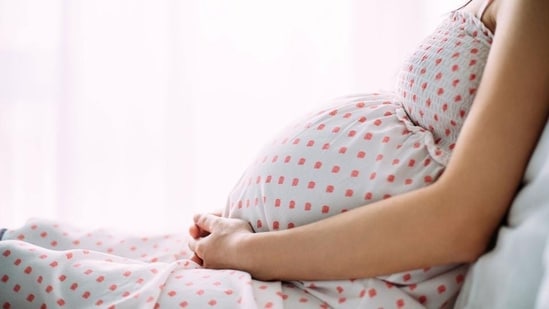This article is authored by Anjali Nayyar, executive vice-president and Suchi Mahajan, vice-president, Global Health Strategies, New Delhi.
Becoming a mother is a life-changing moment, accompanied with powerful emotions, ranging from joy to anxiety. It is common for most new mothers to experience ‘baby blues’ or postpartum anxiety that under normal circumstances lasts for a few days but for some women this can last for several weeks, leading to feelings of unease, inadequacy and, often, postpartum depression (PPD), even a more severe form – postpartum psychosis.

Postpartum depression affects many women. The World Health Organization (WHO) World Mental Health report 2022 notes that globally, upwards of 10% of pregnant women and women who have just given birth experience depression, and this figure is “substantially higher” in lower- or middle-income countries (LMICs). Mental health disorders detected in pregnant women and women who have just given birth carry serious implications for both mother and child.
At the same time, prenatal mental disorders make women susceptible to adverse pregnancy and child outcomes. Mothers experiencing depression or anxiety run the risks of a range of issues, from labour complications and placental insufficiency to low birthweight for the baby. Children born under such physiological conditions can have a 50% higher risk of being underweight and 40% for stunting in early childhood besides the risk of developing behavioural disorders later.
There is a substantial increase in the discussions on mental health in recent years. The WHO report noted that in 2019, an estimated 970 million people globally were living with a mental disorder, 82% of whom were from LMICs. Most alarmingly, the report points out that depressive and anxiety disorders are about 50% more common among women than men throughout the life-course. Amidst these growing conversations, we need to better understand and amplify the narrative around prenatal and postpartum depression to effectively address it.
There has also been documented correlation between prenatal depression/anxiety and PPD. In India, approximately 22% of mothers in India suffer from PPD which has major ramifications for both mother-child relationship as well as child development metrics. Further, the prevalence of perinatal depression stands at between 14 and 24%.
Many cultures, prescribe a period of rest and recovery following birth. Many include traditional ceremonies and good nutrition, or healthy food forms an integral part of them. This is because nutrition acts as a critical variable in postpartum recover with specific research that reveals higher risk for PPD in anaemic women. A 2023 UNICEF states, approximately 19 million infants are at risk of permanent brain damage and reduced cognition because their mothers cannot access iodised salt to protect against iodine deficiency.
Extensive studies reaffirm the protective effects a quality diet can have against maternal depression – such as a diet that incorporates fish, and polyunsaturated fatty acids (PUFA) intake, vitamin supplements, calcium, vitamin D, zinc, and selenium. A 2021 report by the Federation of Obstetric and Gynaecological Societies of India clarifies in detail the range of nutrition needed – and to what degree – to ensure good health for the mother and child. This includes components like docosahexaenoic acid (DHA), essential for the development of the baby and to prevent preterm birth and pre-eclampsia. While DHA is found in different varieties of fish, non-fish eaters can be supplemented with a minimum amount of omega-3 DHA.
While it’s clear that nutrition, mental health and pregnancy outcomes are interlinked, efforts to address have to keep in mind the context, not just clinical solutions. It is essential to recognise social determinants for countries like India where gender roles can negatively impact access to health services for women. A 2018 report on gender and TB in India reveals that in addition to the “usual” risks of under-nutrition women face, their situation is compounded by social norms which deprioritize their health. Survey participants reiterated that it was common for women of a household to eat last and leftover food.
India has in place several initiatives that could help address the above issues. POSHAN Abhiyaan has helped to improve nutritional outcomes for pregnant women, lactating mothers, adolescent girls, and children under 6 years of age in a holistic manner. In 2016, the health ministry also launched Pradhan Mantri Surakshit Matritva Abhiyan which aims to provide quality and free antenatal care to all pregnant women every month. There is also an overarching National and District Mental Health Programme (NMHP and DMHP respectively) that can and must be strengthened and leveraged.
While existing schemes can be augmented, we need to develop a more targeted approach to address mental health in pregnancy or new mothers. For instance, can we better integrate or approach mental health services for women, especially pregnant women, within NMHP or DMHP? We also have the very effective RMNCH+A programme; how can we ensure that this programme addresses, more sharply, the intersection of pregnancy, mental health and nutrition in women? Considering the degree of pressure women face vis-à-vis gender roles especially around pregnancy, it is also important to develop community-level approaches that speak to the pervading patriarchal biases in society and help establish a more empathetic understanding of women’s lived-experiences in society. For example, at the last mile, we have the Village Health, Sanitation and Nutrition (VHSNC) committees. Interventions could leverage the VHSNCs to elevate messages around the intersection of the above issues – and strengthen existing activities that already exist in the programme.
Policy levers exist to mitigate this crisis. We just need to unpack the specific nuances and challenges to better understand that, often, women suffer a matrix of major problems that are inter-linked. Doing so will help the many women who bear the brunt of postpartum, mental health complications. It will also ensure India delivers on the G20 Declaration commitments formed under its presidency when it comes to women’s food security, nutrition, and well-being.
This article is authored by Anjali Nayyar, executive vice-president and Suchi Mahajan, vice-president, Global Health Strategies, New Delhi.
- New Delhi
